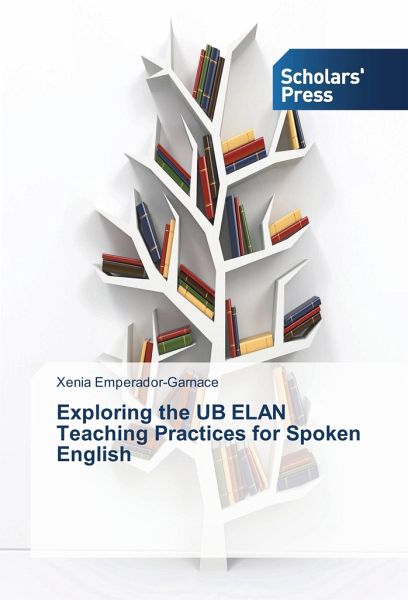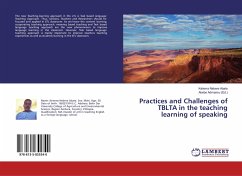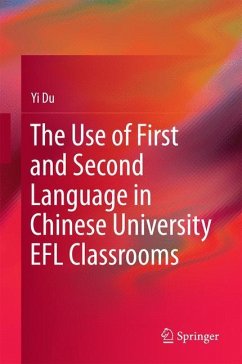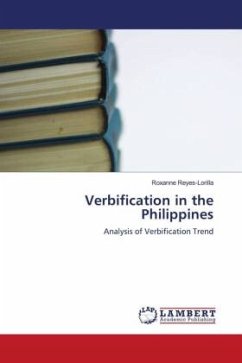
Exploring the UB ELAN Teaching Practices for Spoken English
Versandkostenfrei!
Versandfertig in 6-10 Tagen
30,99 €
inkl. MwSt.

PAYBACK Punkte
15 °P sammeln!
This study explored the teaching practices for spoken English employed by English as Foreign Language (EFL) teachers of the University of Baguio English Language Academy Network (ELAN) perceived as very effective by their Korean EFL students. The study had as its respondents the three (3) Filipino EFL teachers and the thirty-one (31) South Korean EFL university students from Jeon Ju University in South Korea, who worked together in the 10-month English language program. The research paradigm was descriptive with the data collected from the respondents using an audio recorder, video camera, and...
This study explored the teaching practices for spoken English employed by English as Foreign Language (EFL) teachers of the University of Baguio English Language Academy Network (ELAN) perceived as very effective by their Korean EFL students. The study had as its respondents the three (3) Filipino EFL teachers and the thirty-one (31) South Korean EFL university students from Jeon Ju University in South Korea, who worked together in the 10-month English language program. The research paradigm was descriptive with the data collected from the respondents using an audio recorder, video camera, and interview guide. The study yielded the following preferred practices for teaching spoken English, namely: real-world task, simulation, group works, oral presentations, speeches, interviews, class/group discussions, conversations, peer assistance, singing, memorization of useful phrases and sentences, reading aloud, and film viewing. Additionally, the study also found out that the psychological and socio-cultural factors that affect the Korean EFL learners in their learning of spoken English are motivation, society and environment, culture, globalization, teacher factor, and experience.












